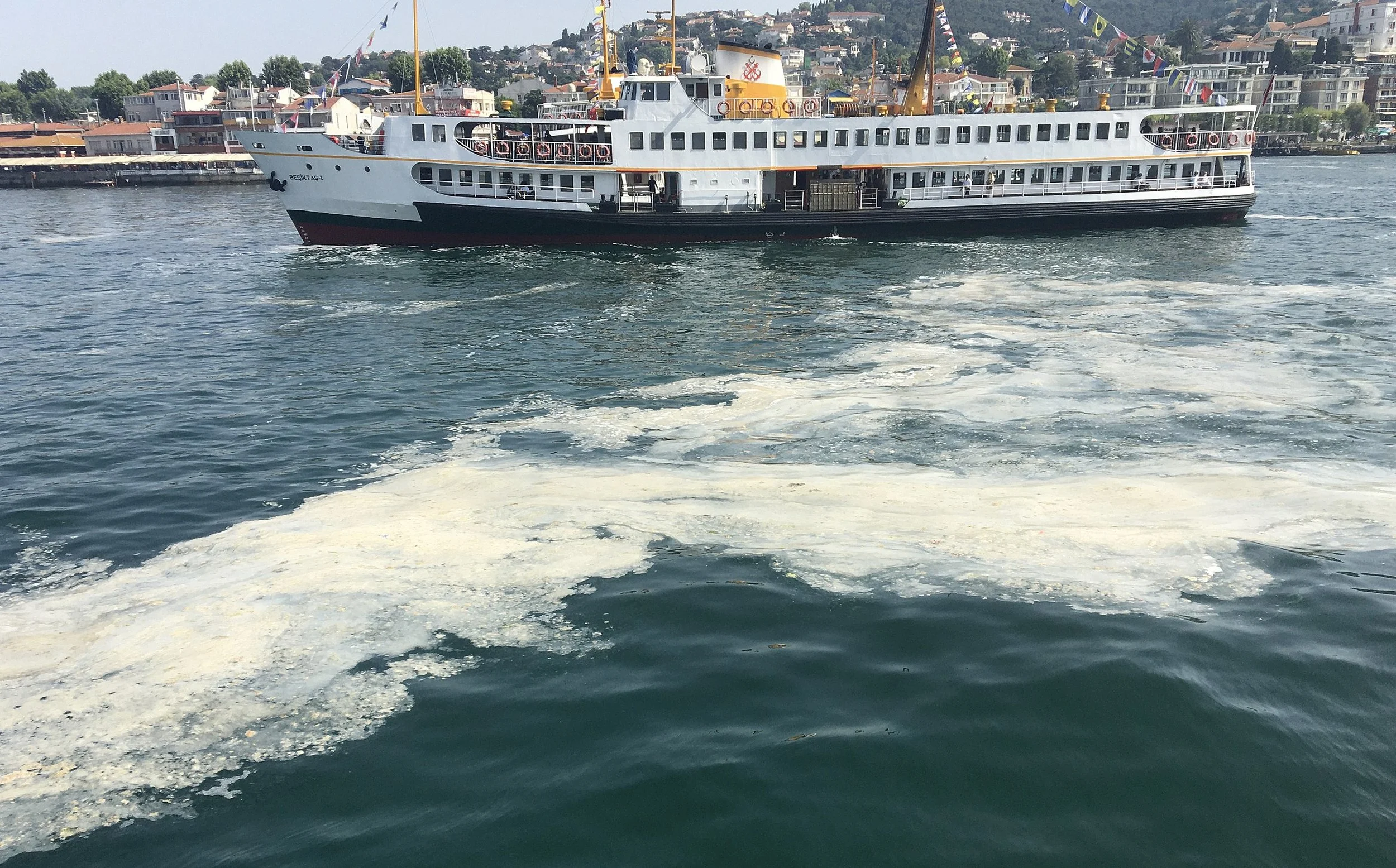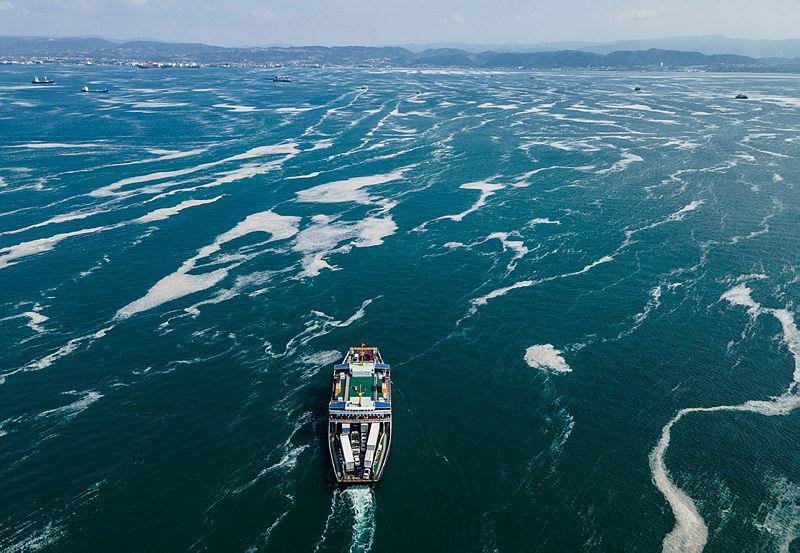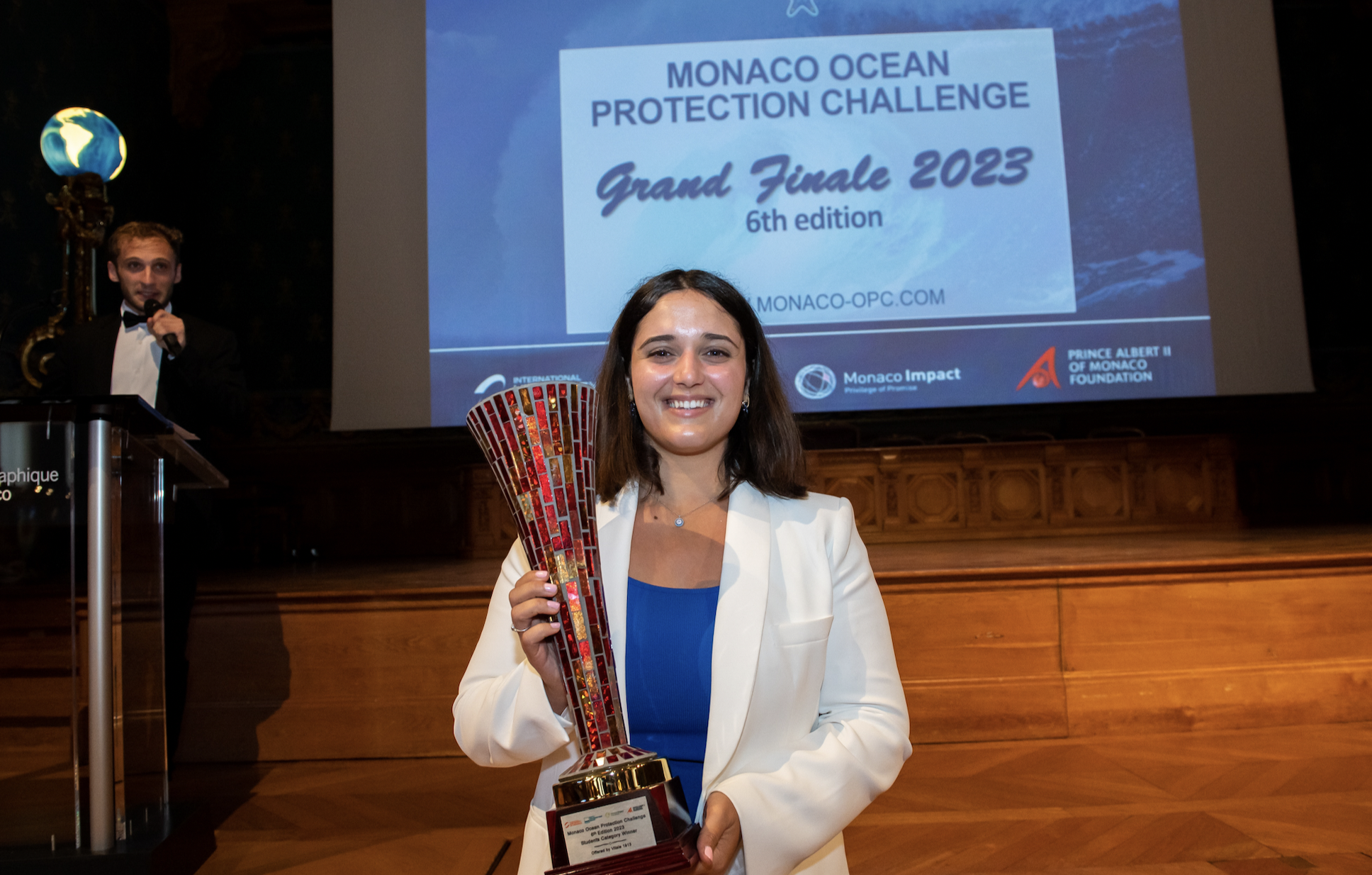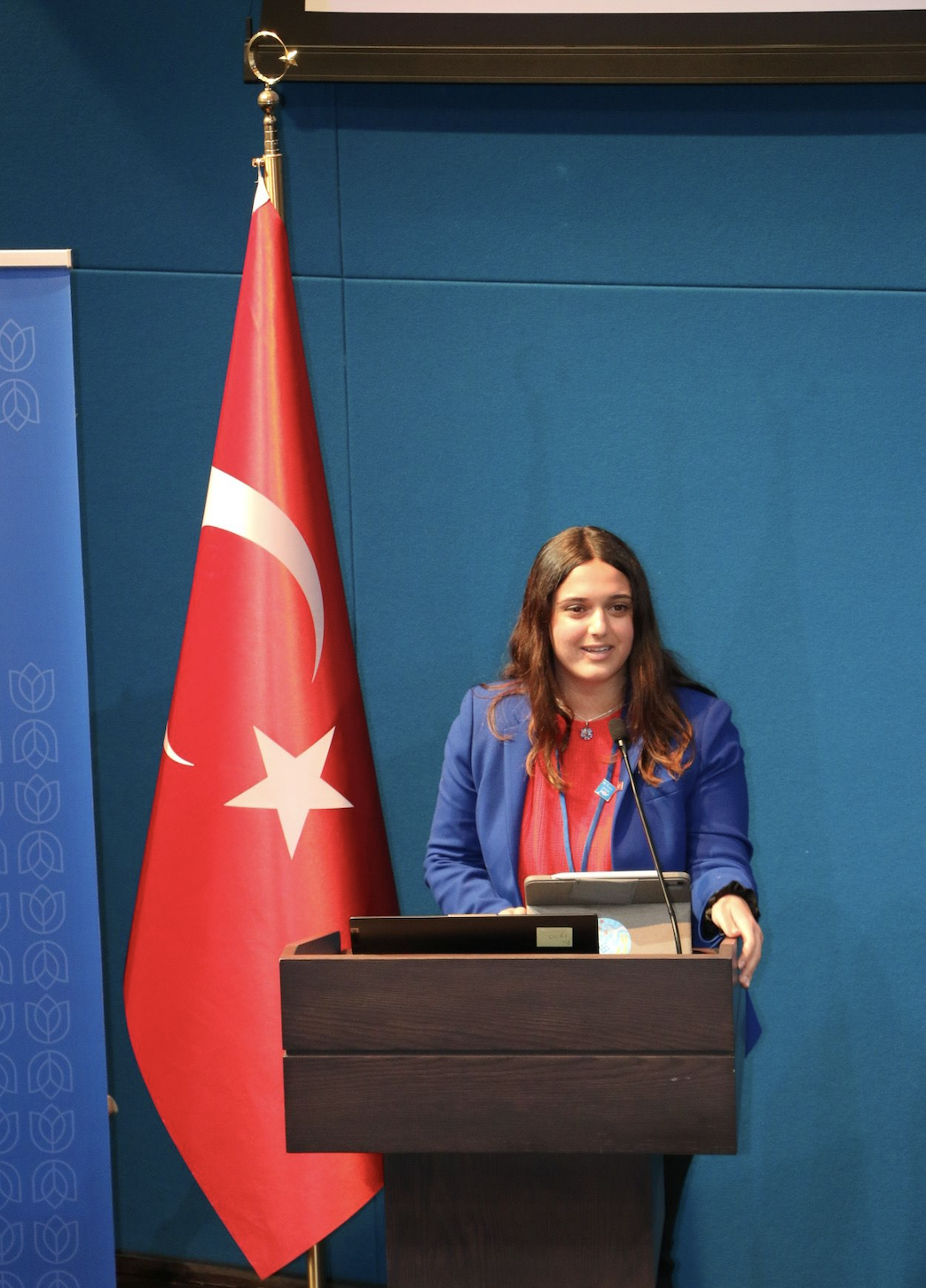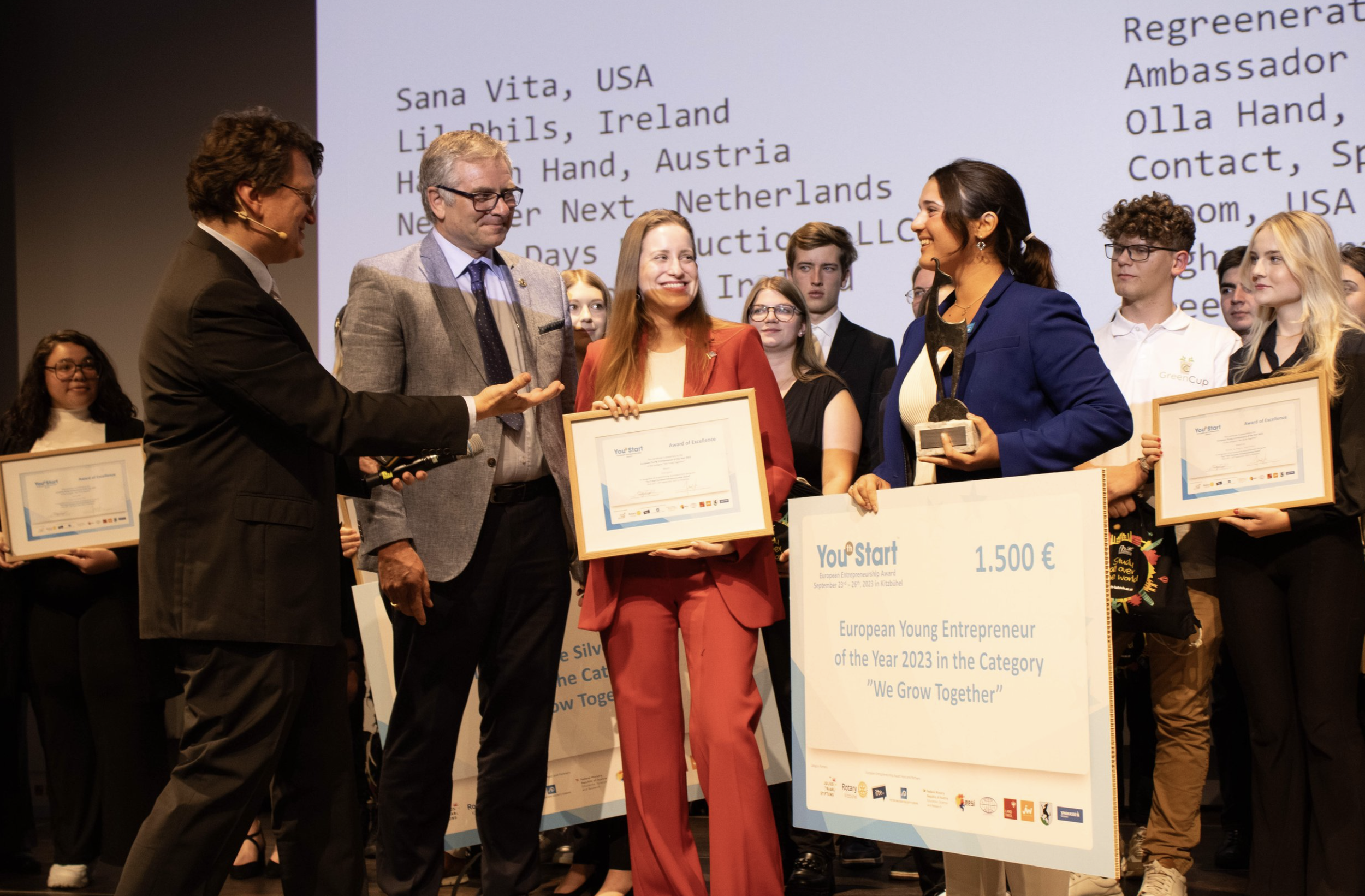Converting Algae. One Bloom at a Time.
What is Sea Mucilage?
Sea mucilage is a slimy, jelly-like substance made up of tiny marine organisms and the waste they produce. It forms when algae and bacteria that normally float separately combine into large clumps on the ocean's surface.
Picture marine snowflakes grouping into big gooey blobs floating in the water - that's mucilage! These mucilaginous aggregates can grow to feet thick and stretch across miles of ocean.
Why is mucilage a concern?
Mucilage spreads across shorelines, making beaches unusable. The slime is causes severe health impacts for swimmers and fish!
As mucilage drifts into harbors and fishing grounds, it clogs nets and boat equipment. This costs the tourism and fishing industries tremendously.
Mucilage blocks sunlight and oxygen from reaching healthy marine life below the surface. It can create "dead zones" in the ocean.
Research shows mucilage shelters bacteria and viruses, including disease-causing pathogens dangerous for ocean creatures and humans!
How does sea mucilage impact the Mediterranean?
The Mediterranean Sea, similar to the Marmara Sea, has always suffered mucilage outbreaks during hot summer months. But scientists have discovered these outbreaks are rapidly worsening every year as ocean temperatures rise. Researchers call this increase "exceptional" - an obvious sign of how climate change is impacting once-pristine waters.
While the Mediterranean faces escalating mucilage events, not all hope is lost. Bloom is pioneering new approaches including:
Conversion
Bloom’s technology is the first to allow coastal communities to consolidate mucus masses and convert them into valuable agricultural fertilizer, incentivizing retrieval and stimulating coastal economies
Early Detection
We are working with the Turkish Ministry of Environment and incorporating nutrient sensors into our technology to provide early warning systems, predicting algal blooms months before they bloom out of control.
Political Interventions
By gathering data and partnering with governments, Bloom is working to establish updated policies that limit nutrient runoff into oceans during high-risk seasons.
Our goal is to empower communities threatened by increased presence of Harmful Algal Blooms (HABS).
Bloom empowers coastal communities to turn algal blooms from a burden into an opportunity. Our solar-powered machines convert collected algae into valuable hydrochar using a patented small-scale carbonization process. This allows municipalities and residents not only to clear their shores, but to revitalize economies.
Bloom was founded after a devastating mucilage bloom in Turkey's Marmara Sea in 2021. As coastal communities struggled to contain the environmental and economic damages, the lack of government support inspired our founder to develop an innovative solution. Bloom aims to equip these communities to efficiently monetize algal bloom debris through conversion technology instead of relying on unstable state-funding for cleanup efforts.
Our decentralized, user-friendly machines put the power of algae remediation directly into the hands of impacted regions. Whether placed with local governments, businesses, or residential collectives, Blooms provide a pathway to clearer shores and restored livelihoods.
Bloom conversions produce highly nutritious hydrochar, which can be sold as biofertilizer or used as a coal alternative. Our patented process ensures maximal nutrient retention and economic value. To date, our prototypes have helped Turkish villages offset 54% of municipal cleanup costs over a five month period.
As climate change accelerates algal bloom frequency globally, Bloom delivers an adaptive, nature-based solution immediate for vulnerable coastal communities as well as public and private stakeholders dependent on aquatic ecosystems. We plan to expand conversion capabilities to other forms of organic waste over time.
Our impact in numbers.
3
functional prototypes developed through international collaboration and TUBITAK Endorsement
54%
reduction in regional municipalities’ mucilage clean-up costs
38%
increase in coastal saturated oxygen levels through current prototype presence
450kg
algae converted since 2023 through 3 functional prototypes
Bloom has made impact across the globe.


